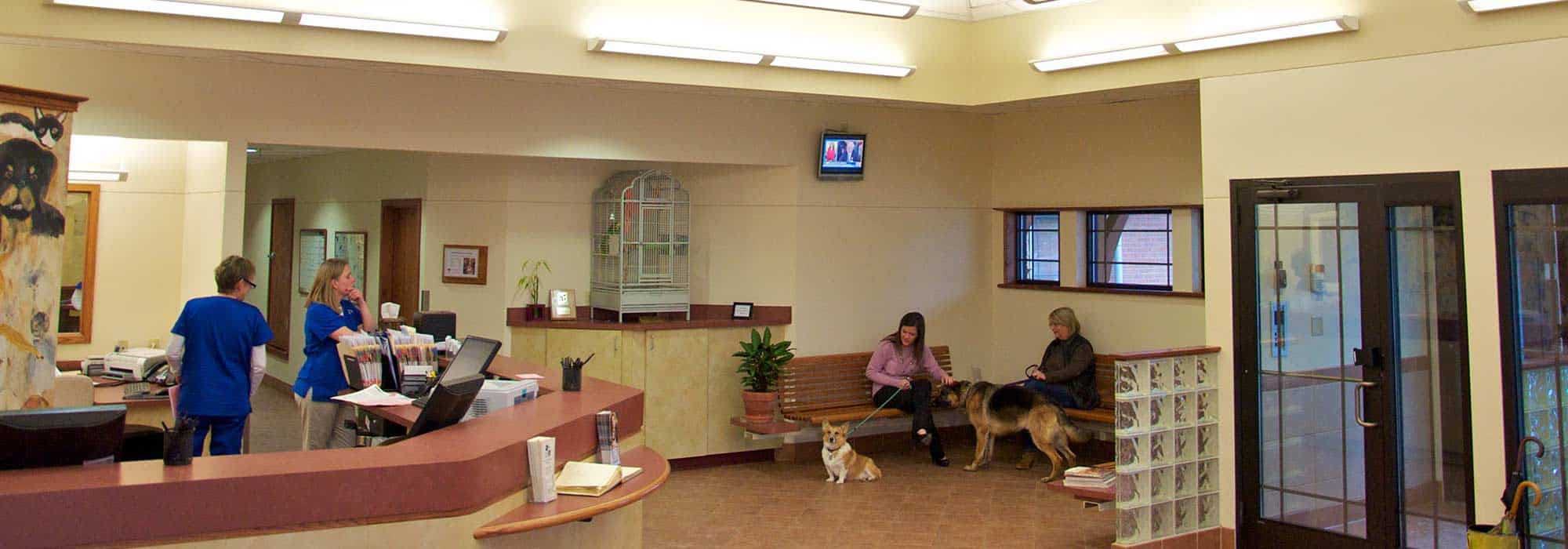Cancer in Dogs: Who’s Most at Risk?
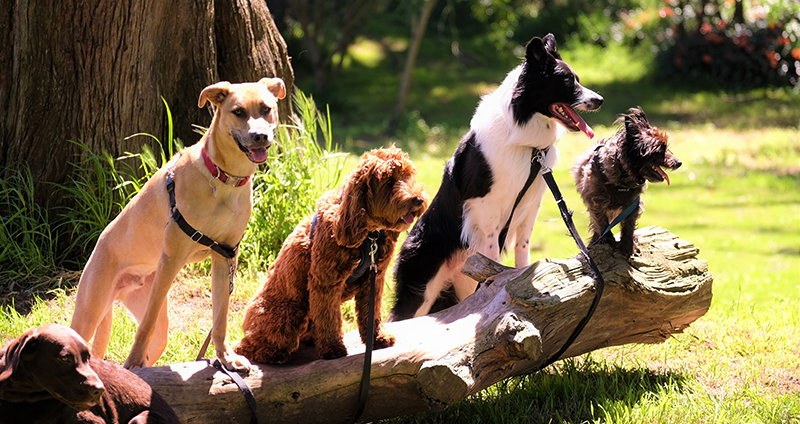
Pet Cancer Awareness Month in May
In our “Focus on Dogs” article for Pet Health Month, we gave a brief overview of cancer in dogs. We summarized that larger, purebred dogs are more at risk for cancer than smaller, mixed-breed dogs.
But there is much more to learn about risk of cancer in dogs. Nationwide Veterinary Analytics studied pet health insurance claims for over 1.6 million Nationwide-insured dogs across the US. Here’s an overview of their experts’ findings.
Cancer in Dogs:
Larger Dogs Have Higher Risk
Everything being equal, a larger dog has a higher risk of cancer– and possibly at an earlier age than expected. Nationwide cautions:
“Large and extra-large dogs are at increased risk of bone cancer as early as six years old.”
Large dogs are 51-110 pounds, while Extra-large dogs are greater than 111 pounds. Compared to the average, Large and Extra-large dogs:
- Purebred: 1.85 times more likely to have a cancer claim
- Mixed breed: almost as likely as purebred dogs to have a cancer claim
As expected, cancer risk increases as a dog ages, with the risk accelerating around age seven for larger dogs.
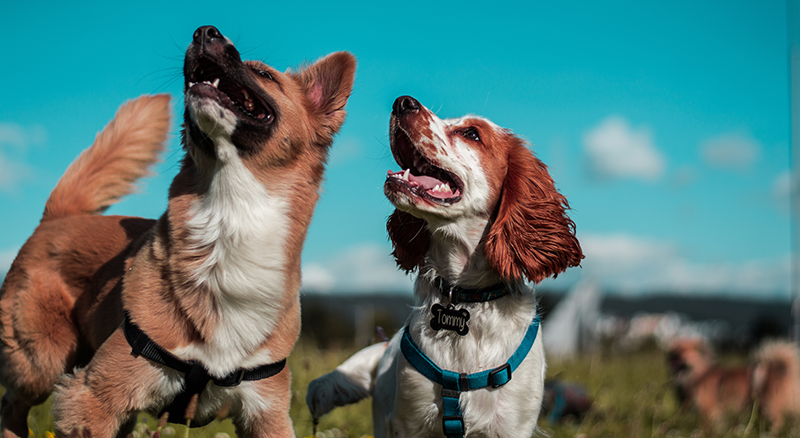
Cancer in Dogs:
Purebred Dogs Have Higher Risk
Sadly, purebred dogs are almost twice as likely to have a claim for cancer as mixed breeds. Here are the details from Nationwide:
“As a group, purebred dogs account for approximately 60% of the dogs studied, with an overall cancer claims rate almost twice (189%, or 1.9x) that for non-purebreds.”
The study authors note that this risk remains constant across thousands of veterinary practices around the country, including urban, suburban and rural environments. There is also a wide variety in pet owner demographics, age of pet, nutrition, obesity and all the other factors that go into a dog’s life.
Our marvelous mutts have less inbreeding and more diverse genetics, which make their systems hardier. The research shows cancer is dogs is highly related to the genetic makeup of the dog.
Cancer in Dogs:
Variations in Risk Across Breeds
Nationwide’s research on cancer in pets show that some purebred breeds have a higher risk, while others benefit from lower risk.
Breeds at Higher Risk of Cancer
- Boxer
- Beagle
- Golden Retreiver
- Rottweiler
- Labrador Retriever
- Boston Terrier
- Doberman Pinscher
- Pug
- Miniature Schnauzer
- English Bulldog
Breeds at Lower Risk of Cancer
- Pomeranian
- Chihuahua
- French Bulldog
- Yorkshire Terrier
- Toy Poodle
- Siberian Husky
More Details on Cancer in Dogs: Top 25 Breeds
Here’s the detail chart for the cancer claim risk for the top 25 breeds in the US.
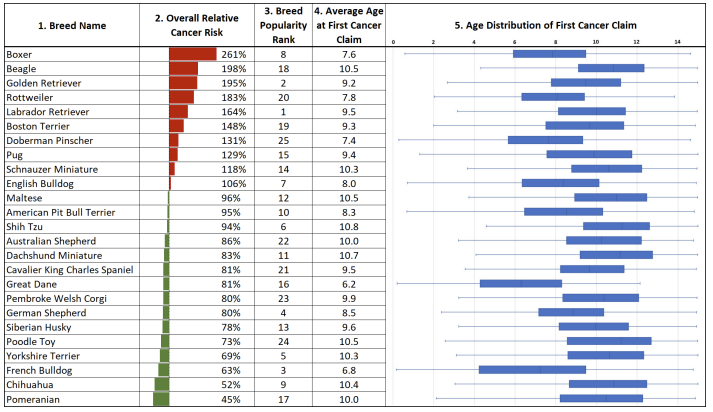
Cancer in Dogs:
Crossbreeds like Labradoodles Have Less Risk than Parent Breeds
It seems the genetic diversity introduced when breeding the “doodle” breeds helps these dogs have less risk for a cancer diagnosis. A Labradoodle will have 75% less risk than the pureblood parent breeds, while a Goldendoodle will have 62% less. Here’s the chart.
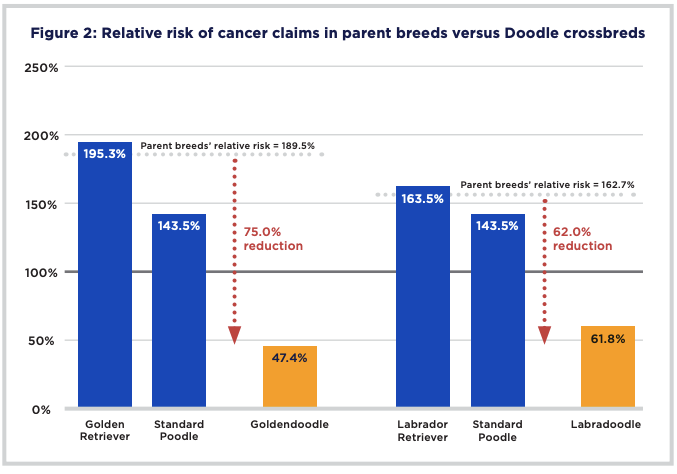
Cancer in Dogs:
How to Manage Risk
In partnership with your veterinarian, you can help manage your dog’s risk. Early diagnosis is an important part of treatment. For instance, claims for skin cancer are the most common and typically happen earlier in a dog’s life, on average at age 8.1. Urinary cancer is diagnosed, on average, after a dog’s 10th year.
Understanding your dog’s risk factors is part of the process. Regular wellness visits are the most critical element of catching and treating any disease, including cancer. Don’t skip this important part of your dog’s health care!
For more health advice, visit our For the Dog Resources. Also, follow us on Facebook, where we share pet education, photo contests and pet fun.

